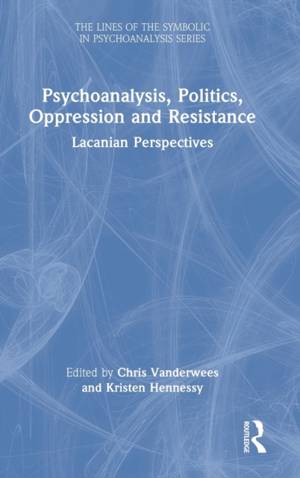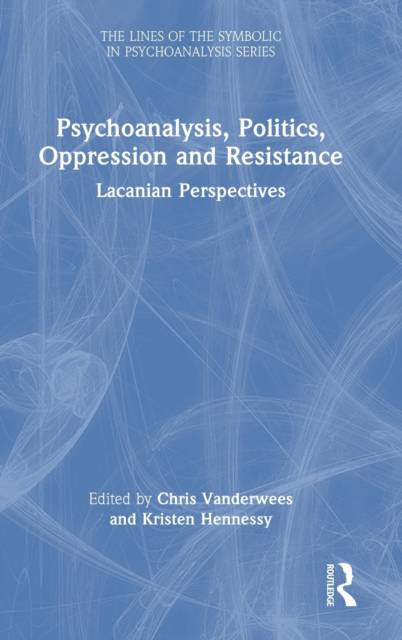
- Retrait gratuit dans votre magasin Club
- 7.000.000 titres dans notre catalogue
- Payer en toute sécurité
- Toujours un magasin près de chez vous
- Retrait gratuit dans votre magasin Club
- 7.000.0000 titres dans notre catalogue
- Payer en toute sécurité
- Toujours un magasin près de chez vous
Psychoanalysis, Politics, Oppression and Resistance
Lacanian Perspectives
Description
This innovative text addresses the lack of literature regarding intersectional approaches to psychoanalysis, underscoring the importance of thinking through race, class, and gender within psychoanalytic theory and practice.
The book tackles the widespread perception of psychoanalysis today as a discipline detached from the progressive ideals of social responsibility, institutional psychotherapy, and community mental health. Bringing together a range of international contributions, the collection explores issues of class, politics, oppression, and resistance within the field of psychoanalysis in cultural, theoretical, and clinical contexts. It shows how, in contrast to this misperception, psychoanalysis has been attentive to these ideals from its origins, as well as demonstrating how it continues to be relevant today, through wide-ranging conceptual discussions of the anti-globalization, Black Lives Matter, and #MeToo movements.
Written in an accessible style, Psychoanalysis, Politics, Oppression and Resistance will be essential reading for practicing psychoanalysts as well as academics and students in a range of humanities and social sciences fields.
Spécifications
Parties prenantes
- Editeur:
Contenu
- Nombre de pages :
- 226
- Langue:
- Anglais
- Collection :
Caractéristiques
- EAN:
- 9781032079134
- Date de parution :
- 10-06-22
- Format:
- Livre relié
- Format numérique:
- Genaaid
- Dimensions :
- 152 mm x 229 mm
- Poids :
- 494 g

Les avis
Nous publions uniquement les avis qui respectent les conditions requises. Consultez nos conditions pour les avis.





